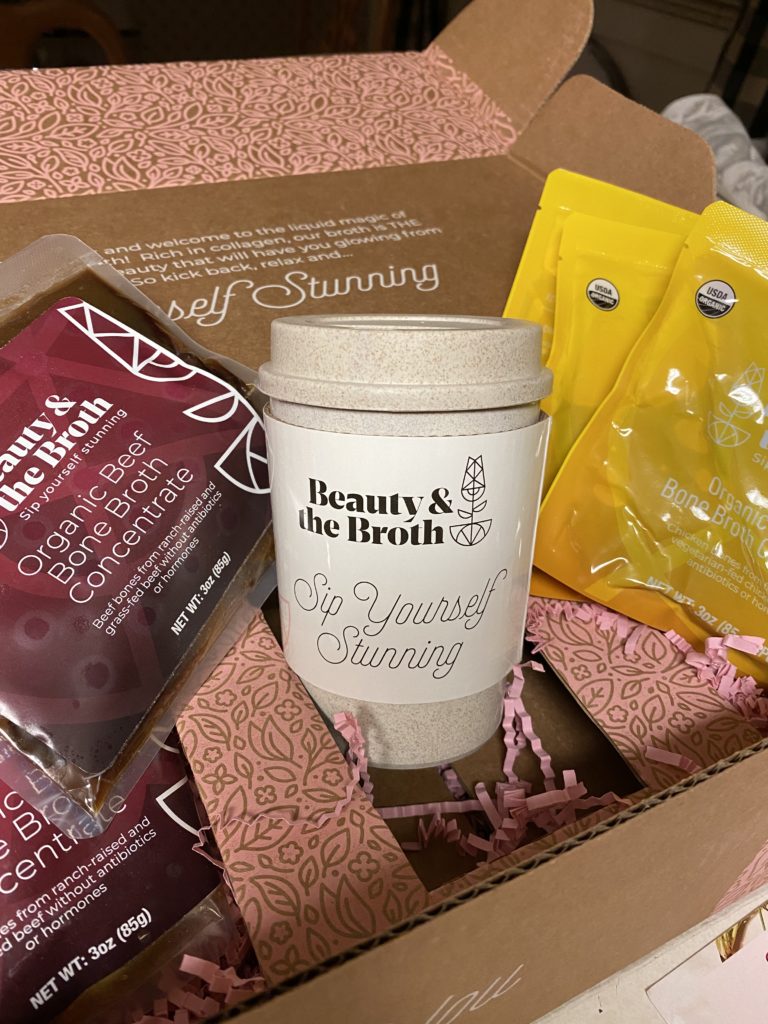I’m sure you’ve seen many beauty and health product ads warning you about how collagen production goes down as we age. And it does. But what exactly is collagen and why do we care about it?
Collagen is a protein responsible for healthy joints and skin elasticity.
Collagen is the most abundant protein in our body. It’s in our bones, muscles, tendons, cartilage and skin, comprising three-quarters of our skin and a third of the protein in our body. It plays an essential part in keeping our body structure strong and intact. It’s also an important component of the connective tissues that keep our skin tight, supple, and youthful-looking.
As we age, our existing collagen breaks down, and it gets harder for our body to produce more. Collagen in the deep layers of the skin goes from a finely ordered network of fibers to a disorganized maze the older we become.
Collagen production begins to decline in our twenties and decreases by about 1% per year. Other factors that contribute to collagen degradation and depletion include UV radiation, smoking, lack of sleep and other lifestyle experiences.
Thankfully, there are some things we can do to help maintain healthy collagen levels in our body and that helps to contribute to better skin, bones and overall health.
1. Stay Hydrated
When our body is well hydrated, vitamins such as Vitamin C can effectively function to stimulate the repair and production of collagen in our systems.
2. Load up on proteins.
Increasing the amount of collagen-rich or collagen-boosting foods in your diet may aid in the production of amino acids that are necessary for collagen synthesis.
Some of these foods include chicken meat, fish and shellfish, eggs and bone broth*.
According to actress and model, Melissa Boloña, founder of Beauty and the Broth, “bone broth is an excellent choice for overall health due to its minimal processing and nutritional benefits in inflammation and gut-related issues, as well as skin maintenance and other beauty benefits. While collagen powder has fewer nutritional benefits, it is a faster solution for beauty and joint health due to its higher collagen content. In simple terms, if you want quality, go for natural bone broth; if you want quantity, go for collagen powders.”
3. Add fresh produce.
These include green leafy vegetables, tomatoes, beans, cashews, garlic, tropical fruits, berries and citrus fruits*.
*Vitamin C, according to a study, helps DNA to regulate and maintain intracellular collagen levels, which has an anti-aging impact. Vitamin C is required for the body to manufacture collagen, therefore, consuming enough of it is critical.
4. Decrease your sugar intake.
When there is too much sugar in the blood, it attaches to protein molecules (a process known as glycation) causing inflammation. This damages the collagen in our bodies and has been shown to link to an increase in the possibility of dementia.
5. Use sunscreen.
Here’s where I’m going to say ‘do as I say, not as I did’. UV radiation depletes the collagen in our body so it’s important to use a good sunscreen every day. My skin is not good because I spent lots of time on the beach in southern California with no sunscreen at all. In fact, back then, we used to slather ourselves with baby oil to enhance our tans. Don’t be like me!
6. Consider using collagen-boosting skincare.
Retinol
Retinols increase the fibroblasts in our skin and stimulate them to produce collagen fibers! These fibers help to make skin more elastic and protect it from deterioration.
Topical vitamin C serum
Again, vitamin C helps DNA to regulate and maintain intracellular collagen levels.
Hyaluronic Acid
Hyaluronic protects the skin cells that produce collagen by surrounding them with water!
Peptides
Peptides aid in the production of collagen and elastin in the skin system by stimulating skin cells to manufacture and generate them.
Aloe Vera
Aloe Vera contains sterol molecules that help stimulate the skin to produce collagen and hyaluronic acid. There’s a new line of skincare products that are derived from Aloe Vera Barbadensis called L’Bri. Read more about them (and how to layer your skincare products) here.
7. Get regular physical exercise.
Exercising boosts blood circulation which delivers more nutrients and oxygen to the skin for nourishment. Exercising also helps regulate our cortisol, the stress hormone that damages collagen.
8. Don’t smoke.
If you do smoke, stop. Smoking is hard on every part of your body, including your skin.
9. Consider collagen supplements.
While the jury is still out on just how much adding collagen to your diet helps, there’s no evidence that a well-made organic collagen supplement can hurt, so it’s worth a try. The body needs amino acids to build collagen. Collagen supplements may help to provide these nutrients.
There have been some studies but most of the studies have been done by manufacturers of collagen. I do like the results of one study where 102 postmenopausal women with decreased bone density took 5 grams of collagen peptides per day. Those who took it for 1 year had significant increases in BMD in their spine and femur (a bone in the lower leg) compared with participants who took a placebo.
What does a collagen supplement* contain?
Collagen supplements are usually offered as collagen peptides or hydrolyzed collagen, which are broken down forms of collagen that are more easily absorbed. They contain amino acids, the building blocks of protein. Some may also contain additional nutrients related to healthy skin and hair like vitamin C, biotin, astaxanthin, and/or zinc. Collagen peptide supplements are typically made from the connective tissue of cows or from the skin and scales of fish.
Possible benefits include:
- may promote skin hydration
- may show Improvement in wrinkles and fine lines
- may help promote elasticity
- supports an even skin tone
- may help improve dark circles and bags under the eyes
- may help to promote healthy hairBecause collagen is not regulated, be sure to get your supplements from a trusted source. I’m currently trying the one shown above from OMONO. I’ll keep you updated on my thoughts about it.
* Always consult with your physician before taking any supplement.
Bonus: Here’s a fun collagen-latte recipe to try!
This recipe was adapted from one I received in a Fab, Fit Fun magazine.
Pumpkin-Spice Collagen Latte’
Ingredients:
Coconut Whip:
Latte:
Directions:
Coconut Whip:
Latte:
LEARN TO LOVE YOUR LIFE AGAIN
 Do you feel like you need to hit the REFRESH button on your life? Download our free guide and begin to create your best life yet!
Do you feel like you need to hit the REFRESH button on your life? Download our free guide and begin to create your best life yet!





